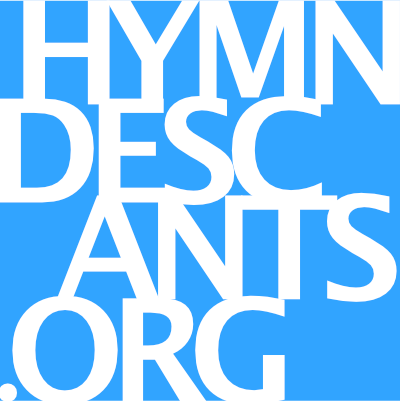AUDIO: Hymnal harmonization, adapt. Felix Mendelssohn - Descant verse Free score.
1 hymnal (Felix Mendelssohn)
O Word of God incarnate,
O Wisdom from on high,
O Truth unchanged, unchanging,
O Light of our dark sky:
We praise thee for the radiance
That from the hallowed page,
A lantern to our footsteps,
Shines on from age to age.
2. descant
O make Thy Church, dear Savior,
A lamp of purest gold,
To bear before the nations
Thy true light as of old.
O teach Thy wandering pilgrims
By this their path to trace,
Till, clouds and darkness ended,
They see Thee face to face.
The tune going by the name MUNICH traces its origins to 1593, when it appeared in the
Dresdner Gesangbuch, which reappeared somewhat evolved a century later in
Neu-vermehrtes und zu Übung Christl. Gottseligkeit eingerichtetes Meiningisches Gesangbuch - a word salad that is more frequently simplified to
Meiningen Gesangbuch, at that time used as a hymnal in Munich (which is not near Meiningen). It is
this variant that Felix Mendelssohn adapted from the hymn
O Gott, du frommer Gott, and arranged for the vocal quartet
Cast thy burden upon the Lord in his oratorio,
Elijah. His rendition has passed into modern hymnody, paired most significantly with William Walsham How's 1867 hymn,
O Word of God incarnate. His original had four verses, but in some hymnals, the middle two are condensed into single verse. Every bit accepting of modern science, How's hymn nevertheless enlarges on the incipit of the prologue to St. John's gospel - "In the beginning was the word, and the word was with God, and the word was God" - to establish the centrality of the Bible in Christian faith and doctrine. Bishop How is well known for other works - a hymn,
For all the saints, and his life of service; as suffragan bishop he lived among the
poor of East London. For this service, he turned down higher episcopal appointments in Durham and Manchester. Not to be denied, the Church of England converted his suffrage into a diocese (Wakefield) and made him the bishop of it.
Sources:
The Hymnary
The History of Hymns (UMC Discipleship Ministries)
Hymns of Faith (interview and transcript, First Presbyterian Church, Jackson MS)
Mendelssohn: A Life in Music, R. Larry Todd, Oxford University Press, 2003 ISBN 978-0195110432
Mendelssohn Essays, R. Larry Todd, Routledge, 2007 ISBN 978-0415978149.
Descant verse:
O make thy church, dear Savior, a lamp of burnished gold,
to bear before the nations thy true light as of old;
O teach thy wandering pilgrims by this their path to trace,
till, clouds and darkness ended, they see thee face to face.
– William Walsham How (1867)

